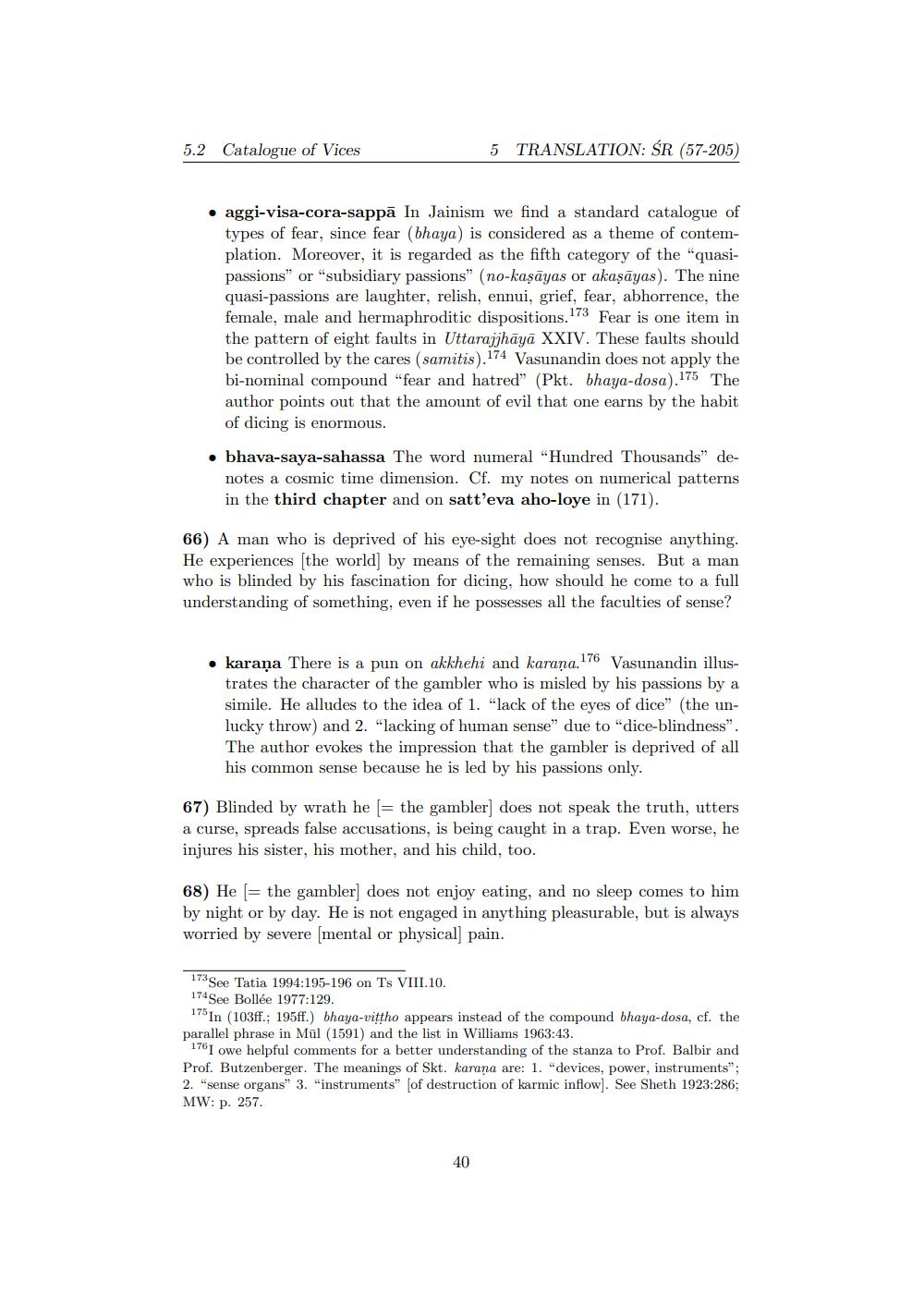________________
5.2 Catalogue of Vices
⚫aggi-visa-cora-sappă In Jainism we find a standard catalogue of types of fear, since fear (bhaya) is considered as a theme of contemplation. Moreover, it is regarded as the fifth category of the "quasipassions" or "subsidiary passions" (no-kaṣāyas or akaṣayas). The nine quasi-passions are laughter, relish, ennui, grief, fear, abhorrence, the female, male and hermaphroditic dispositions.173 Fear is one item in the pattern of eight faults in Uttarajjhāyā XXIV. These faults should be controlled by the cares (samitis).174 Vasunandin does not apply the bi-nominal compound "fear and hatred" (Pkt. bhaya-dosa).175 The author points out that the amount of evil that one earns by the habit of dicing is enormous.
5 TRANSLATION: ŚR (57-205)
⚫ bhava-saya-sahassa The word numeral "Hundred Thousands" denotes a cosmic time dimension. Cf. my notes on numerical patterns in the third chapter and on satt'eva aho-loye in (171).
66) A man who is deprived of his eye-sight does not recognise anything. He experiences [the world] by means of the remaining senses. But a man who is blinded by his fascination for dicing, how should he come to a full understanding of something, even if he possesses all the faculties of sense?
● karaṇa There is a pun on akkhehi and karaṇa.176 Vasunandin illustrates the character of the gambler who is misled by his passions by a simile. He alludes to the idea of 1. "lack of the eyes of dice" (the unlucky throw) and 2. "lacking of human sense" due to "dice-blindness". The author evokes the impression that the gambler is deprived of all his common sense because he is led by his passions only.
67) Blinded by wrath he [= the gambler] does not speak the truth, utters a curse, spreads false accusations, is being caught in a trap. Even worse, he injures his sister, his mother, and his child, too.
68) He [= the gambler] does not enjoy eating, and no sleep comes to him by night or by day. He is not engaged in anything pleasurable, but is always worried by severe [mental or physical] pain.
173 See Tatia 1994:195-196 on Ts VIII.10.
174 See Bollée 1977:129.
175 In (103ff.; 195ff.) bhaya-vittho appears instead of the compound bhaya-dosa, cf. the parallel phrase in Mül (1591) and the list in Williams 1963:43.
176I owe helpful comments for a better understanding of the stanza to Prof. Balbir and Prof. Butzenberger. The meanings of Skt. karana are: 1. "devices, power, instruments"; 2. "sense organs" 3. "instruments" [of destruction of karmic inflow]. See Sheth 1923:286; MW: p. 257.
40




